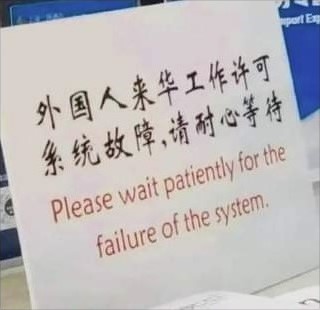I see that the media handmaidens of the Democrat Party are gearing up, preparing to scare the ever-loving snot out of the general public again with a new Covid variant. I swear, I can almost hear them in the newsrooms, dancing about, shaking rattles and wailing “Oooga-booga! Run for your lives, it’s a new Covid variant! It’s gonna kill granny, an’ everyone! Strap on the masks, get the vax, universal mandate! Social distancing! close down all the things! Mass insanity! Cats and dogs living together!” Or something like it. I suppose the readily boggled will fall … again … for that old panic magic, but will the rest of us?
Predictions
Worse and Worse
The trickle of news regarding the Maui wildfires which incinerated an entire town and likely over a thousand of its residents just gets worse and even more distressing with every tidbit reluctantly disgorged by the local authorities. 1,100 are still listed as missing. After a week, it is most likely that they are dead. Many of the missing are presumed to be children, as local schools were closed because of high winds and power outages and children at home alone because their parents were at work. Others might be senior citizens trapped in a local retirement home, unable to move without assistance, and visiting tourists unfamiliar with the area, whom no one has thought to report missing as yet. That so many are still unaccounted for especially the children — that is an aspect that is difficult to contemplate. No wonder that local authorities are reluctant to admit the degree of carnage.
When Midwesterners Collide—A Challenge to Bill Quick

This is a lengthy response, and an implicit challenge to debate, prompted by Bill Quick’s “If Something Cannot Go On Forever, It Will Stop,” published on Thursday 27 April and duly Instalanched on Monday 8 May.
The first thing you need to do is read Bill’s essay; it’s ~4,200 words, reading time 10-20 minutes. I’ll be summarizing it below, but my (brief) summary will not only be explicitly theoretical but will be deliberately contrasted with my subsequent application-oriented response, so you will not get an altogether adequate notion of Bill’s thesis by reading this post alone.
That said, this will not be a mere fisking, and given what I believe is Bill’s current geography, only two states east of mine, a face-to-face debate is a real possibility, and one I hope to learn from.
Pi devan! (“Onward!”)
Running Slap Up Against Reality
This week, I noted several different blogs and bloggers commenting on Jazz Jennings, the reality TV star and poster-child for juvenile transition to the sex they (or their parents) think they want to be, rather than what their genitalia dictates. That the kid doesn’t appear to be the least bit happy in female skin is something that was predicted by anyone paying the slightest bit of attention. It doesn’t need Ray Charles to have seen that coming. A number of other, less-well-known transitioners have come out into the open, publicly regretting how they were hustled into making decisions as teens wrestling with various issues which have permanently damaged their bodies, their reproductive functions and their general mental well-being. Well, the young, unwary and easily duped (or their parents) falling for a fad does have that result, although usually fads aren’t quite so permanently damaging as the trans mania has proved to be. I would cautiously hope that this one is on the deflationary spiral, although I am afraid that whatever appears to replace it in shallow public awareness might prove to be even worse.
A Trivial Diversion – The Right Royal Ruckus
Although ruckus is perhaps too mild a term for the flaming dumpster fire, train wreck or thirty-car pile-up on the interstate, for the public relations disaster that has been called down upon the Windsor family by the present king’s younger son. One isn’t so much drawn to look, in horror just that one can’t look away from the international spectacle of a man napalming relationships with his own family, all egged on by his wife and the news/entertainment media.